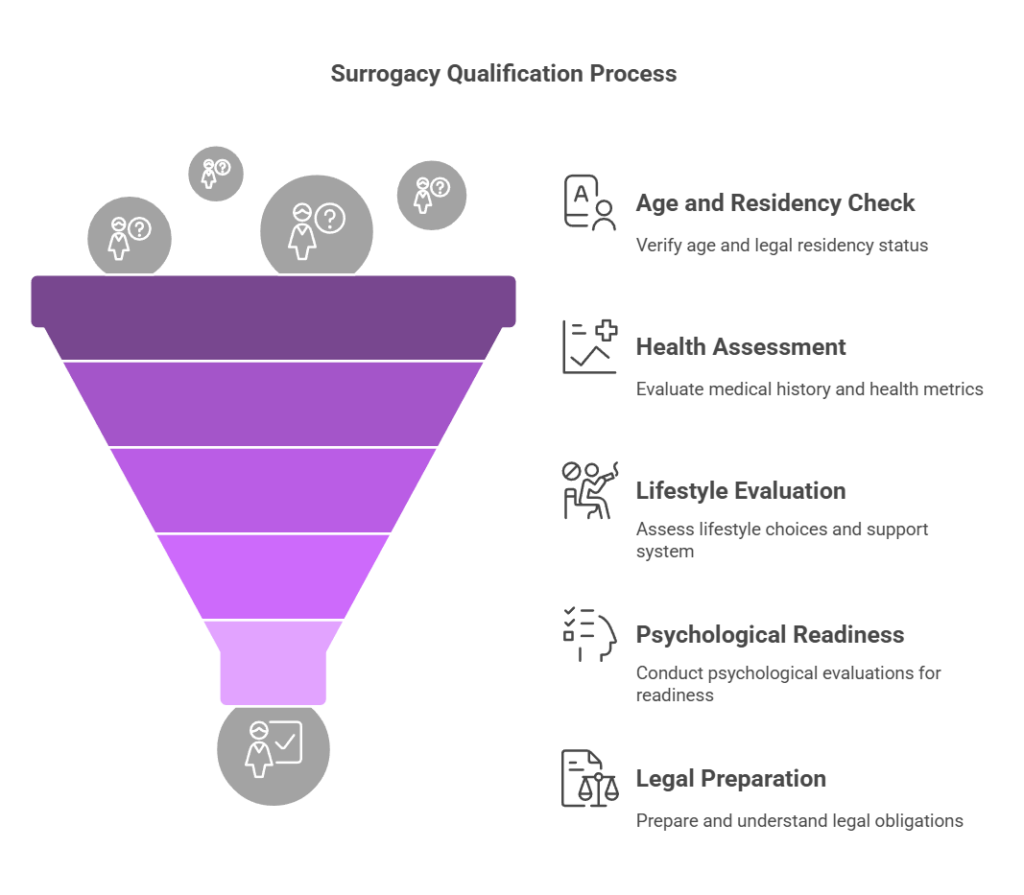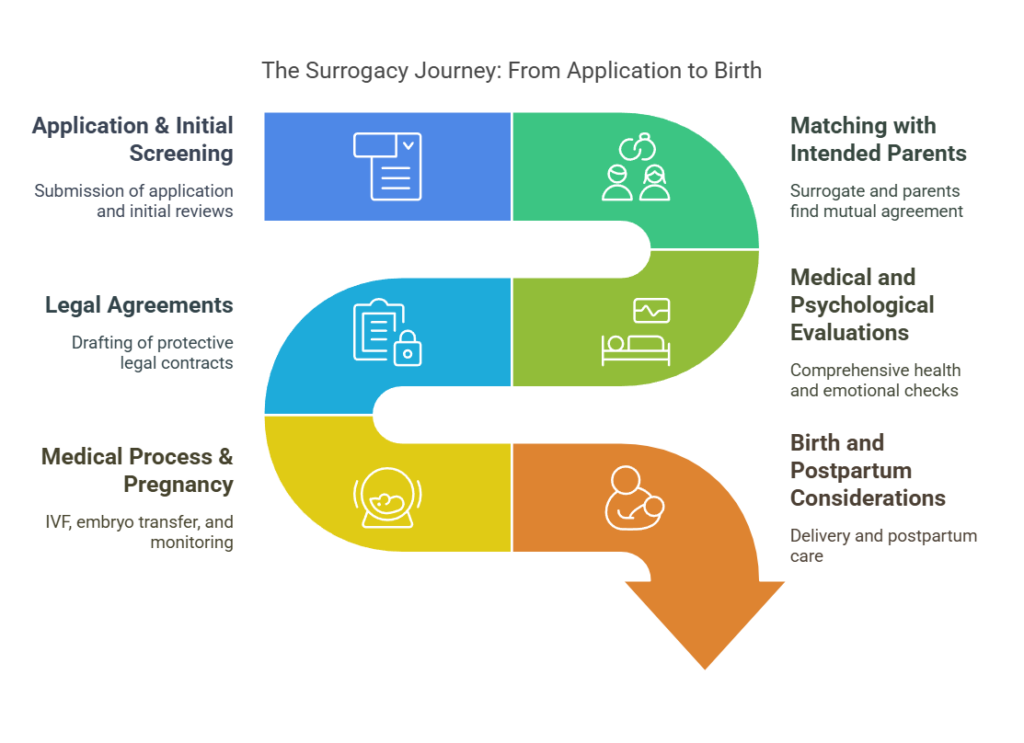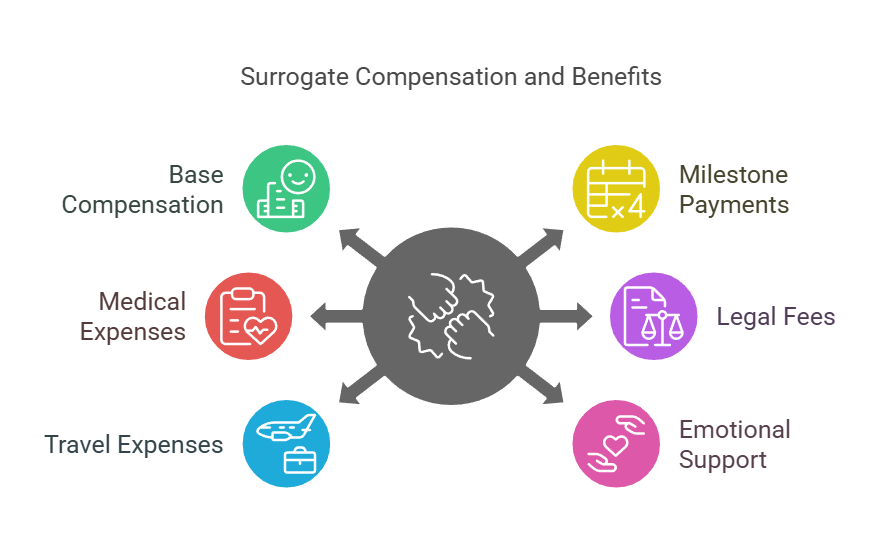I. Introduction
Surrogacy has become an essential path to parenthood for many individuals and couples who cannot conceive on their own. Whether due to medical conditions, infertility, or same-sex couples looking to start a family, surrogacy provides an opportunity to bring new life into the world with the help of a compassionate woman willing to carry a pregnancy on their behalf.
In Houston, surrogacy is becoming increasingly common due to the supportive legal framework in Texas, high-quality medical facilities, and a growing network of experienced professionals in the field. If you are considering becoming a surrogate in Houston, understanding the requirements, process, and legal aspects is crucial before making this life-changing decision.
This guide will outline everything you need to know about becoming a surrogate mother in Houston, from eligibility requirements to the step-by-step process.
II. Requirements to Become a Surrogate in Houston
Before beginning the surrogacy journey, potential surrogates must meet specific medical, legal, and psychological requirements. These criteria help ensure a safe and healthy pregnancy for both the surrogate and the baby. ( Surrogate Eligibility Quiz )
1. Basic Eligibility Criteria
To qualify as a surrogate in Houston, you must:
- Be between 21 and 40 years old (some agencies may have different upper age limits)
- Be a U.S. citizen or legal resident
- Live in a state where surrogacy is legally permitted (Texas has favorable surrogacy laws)
- Have a stable home environment with financial security, meaning you are not currently relying on government assistance
2. Health & Pregnancy History
A surrogate must have a proven history of healthy pregnancies and deliveries. Specific medical requirements include:
- Having given birth to at least one child of your own
- A history of uncomplicated pregnancies with no major medical issues
- No more than five previous vaginal births or 3 C-sections
- A BMI (Body Mass Index) of 19-35 to minimize health risks (BMI Calculator)
- Being in good overall health, with no chronic illnesses such as diabetes, high blood pressure, or heart disease
3. Lifestyle and Psychological Readiness
Surrogacy is a significant commitment, both physically and emotionally. To ensure the surrogate is prepared for the journey, the following lifestyle and mental health factors are considered:
- A non-smoker and drug-free lifestyle
- A supportive home environment, with a partner or family who understands the process
- No history of postpartum depression or other significant mental health conditions
- Willingness to undergo psychological evaluations to assess emotional preparedness
- Open communication with the intended parents throughout the process
4. Legal Readiness
Before becoming a surrogate, you must be aware of the legal aspects of surrogacy in Texas. Texas law allows gestational surrogacy, meaning the surrogate has no genetic connection to the child. Surrogates must be prepared to:
- Sign legal agreements that define parental rights
- Work with attorneys to draft and finalize a gestational surrogacy contract
- Follow the legal process for parental establishment before birth
Meeting these requirements ensures a smooth and successful surrogacy journey, benefiting both the surrogate and the intended parents.

III. The Surrogacy Process in Houston
Once you meet the eligibility criteria, the next step is to go through the surrogacy process, which involves several steps from application to childbirth.
1. Application & Initial Screening
The first step is submitting an application, which includes personal and medical information. A surrogacy agency or fertility clinic will review your background, previous pregnancies, and overall health. More: From Start to Finish: A Surrogate Mother’s Guide to the Surrogacy Timeline
After the initial application is accepted, surrogates typically go through:
- A medical records review
- A background check for legal and criminal history
- A home visit or interview to assess readiness and support system
2. Matching with Intended Parents
Once approved, surrogates are matched with intended parents. The matching process considers:
- Personal values and expectations
- Communication style and preferences
- The level of involvement the intended parents want during pregnancy
Once both parties agree to move forward, a legal contract is drafted.
3. Medical and Psychological Evaluations
Before undergoing the medical procedures involved in surrogacy, a surrogate must complete:
- A comprehensive medical screening to confirm reproductive health
- A psychological evaluation to ensure emotional preparedness
- A review of potential risks and responsibilities associated with surrogacy
4. Legal Agreements
Surrogacy requires legal contracts that protect both the surrogate and the intended parents. A legal agreement will:
- Outline the responsibilities of both parties
- Define financial compensation and medical coverage
- Establish parental rights before birth
Texas law allows intended parents to obtain pre-birth orders, ensuring their names appear on the birth certificate immediately after delivery.
5. Medical Process & Pregnancy
Once all legal steps are completed, the medical process begins:
- IVF and Embryo Transfer: The intended parents’ embryo is created through IVF and transferred to the surrogate’s uterus.
- Pregnancy Monitoring: The surrogate will attend regular prenatal checkups to ensure the baby’s health.
- Delivery Plan: Plans are made for delivery at a hospital, ensuring the intended parents are involved in the birth process.
6. Birth and Postpartum Considerations
After birth, the baby is handed over to the intended parents. The surrogate receives postpartum medical care and emotional support. Agencies often provide counseling to help surrogates transition after the experience.

IV. Compensation and Coverage
1. Base Compensation for Surrogates in Houston
Compensation varies based on experience, agency, and medical needs. In Houston, surrogates typically receive:
- Base compensation: $60,000+
- Additional payments: For milestones such as embryo transfer, maternity clothing, and C-sections
2. Additional Benefits for Surrogates
- Medical expenses covered (prenatal care, labor, delivery)
- Legal fees covered
- Travel expenses covered (if required)
- Emotional support and counseling

V. Legal and Ethical Considerations
Houston follows Texas surrogacy laws, which:
- Recognize gestational surrogacy contracts as enforceable
- Allow pre-birth orders to establish intended parents’ legal rights
- Require independent legal representation for surrogates and intended parents
It’s crucial for surrogates to fully understand the legal framework before proceeding.
VI. Conclusion
Becoming a surrogate mother in Houston is a rewarding journey that allows women to help others build their families while receiving financial and emotional support. By meeting the necessary requirements, following the structured process, and working with experienced professionals, surrogates can have a positive and fulfilling experience.
For those interested in becoming a surrogate, taking the time to research, ask questions, and consult with surrogacy professionals is essential to making an informed decision.




